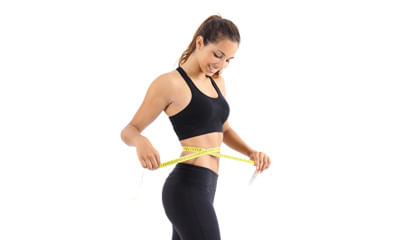Get the App
For Doctors
Login/Sign-up
Last Updated: Aug 29, 2019
BookMark
Report
Sugary drinks versus sugary sweets (mithai)
When we talk about health, everybody talks against soft drinks. They say that one should not substitute water with soft drinks. One should take not more than one soft drink a day.
From medical point of view, soft drinks mean any drink, which contains more than 10% sugar. Oral rehydration solution that is medically recommended for dehydration and marketed as a replacement solution is not a sugary drink as it contains not more than 2–3% sugar. A 200 ml bottle of soft drink, on an average, contains 20 gm of sugar, which amounts to 10%.
Most mithais or the so-called Indian sweets contain more than 10% sugar; an average person consumes 100 gm of sweets per meal.
The traditional halwas such as moong ki daal ka halwa or gajar ka halwa or suji halwa contain 30% sugar. Suji Halwa is made of one cup of ghee, one cup of suji and two cups of sweet syrup and four cups of water. Kalakand is the least sweetened Indian sweet as it contains only 300 gm of sugar in 10kg of milk. Indian traditional Burfi is 3 kg sugar in 10 kg of khoya. Kaaju burfi is 50% sugar, gulab jamun is 40% sugar, rasgulla syrup contains 50% sugar (made of only cow milk and sugar).
The sugar syrup, or chashni as it is called, is 50% sugar. Most soft drinks have 10% sugar.
Most Indian sweets are prepared either in sugar syrup or vanaspati ghee (hydrogenated oils). A sweet cannot be made in artificial sweeteners as artificial sweetener cannot be converted into a sugar syrup or chashni. The sweets prepared in vanaspati ghee are gulab jamun, laddoo, patisa, balushahi, sohan halwa. Sohn halwa contains the maximum hydrogenated oil. Balushahi also contains 60% ghee.
The sweets that are prepared without any ghee are those prepared with sugar syrup; they are rasgulla, ras malai, chum chum etc.
Most salty snacks are made in soyabean oil which is the cheapest oil. Other oils, which can be used are sunflower oil, cottonseed oil. Samosa, kachori are made of maida but they are not cooked in transfat or hydrogenated oils but in soyabean oil.
The hydrogenated oils or vanaspati ghee is only present in items like laddoo, balushahi, besan ka laddoo, patisa etc.
From medical point of view, soft drinks mean any drink, which contains more than 10% sugar. Oral rehydration solution that is medically recommended for dehydration and marketed as a replacement solution is not a sugary drink as it contains not more than 2–3% sugar. A 200 ml bottle of soft drink, on an average, contains 20 gm of sugar, which amounts to 10%.
Most mithais or the so-called Indian sweets contain more than 10% sugar; an average person consumes 100 gm of sweets per meal.
The traditional halwas such as moong ki daal ka halwa or gajar ka halwa or suji halwa contain 30% sugar. Suji Halwa is made of one cup of ghee, one cup of suji and two cups of sweet syrup and four cups of water. Kalakand is the least sweetened Indian sweet as it contains only 300 gm of sugar in 10kg of milk. Indian traditional Burfi is 3 kg sugar in 10 kg of khoya. Kaaju burfi is 50% sugar, gulab jamun is 40% sugar, rasgulla syrup contains 50% sugar (made of only cow milk and sugar).
The sugar syrup, or chashni as it is called, is 50% sugar. Most soft drinks have 10% sugar.
Most Indian sweets are prepared either in sugar syrup or vanaspati ghee (hydrogenated oils). A sweet cannot be made in artificial sweeteners as artificial sweetener cannot be converted into a sugar syrup or chashni. The sweets prepared in vanaspati ghee are gulab jamun, laddoo, patisa, balushahi, sohan halwa. Sohn halwa contains the maximum hydrogenated oil. Balushahi also contains 60% ghee.
The sweets that are prepared without any ghee are those prepared with sugar syrup; they are rasgulla, ras malai, chum chum etc.
Most salty snacks are made in soyabean oil which is the cheapest oil. Other oils, which can be used are sunflower oil, cottonseed oil. Samosa, kachori are made of maida but they are not cooked in transfat or hydrogenated oils but in soyabean oil.
The hydrogenated oils or vanaspati ghee is only present in items like laddoo, balushahi, besan ka laddoo, patisa etc.



+1.svg)
